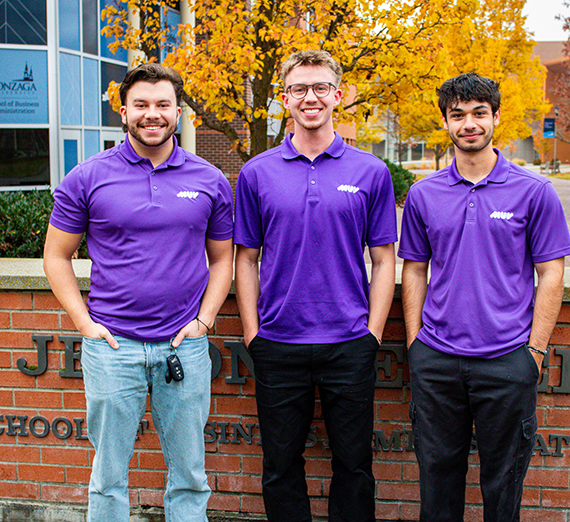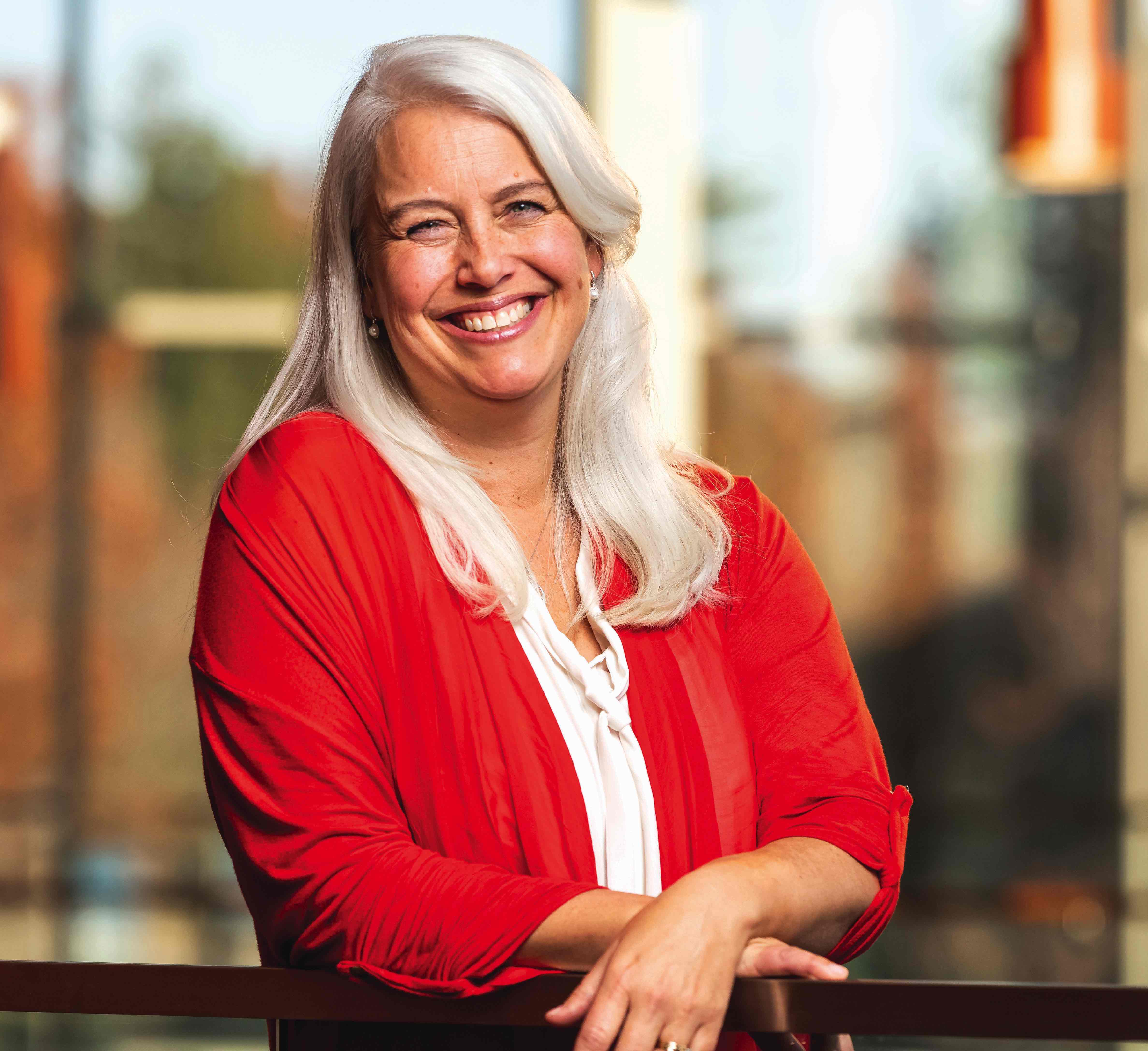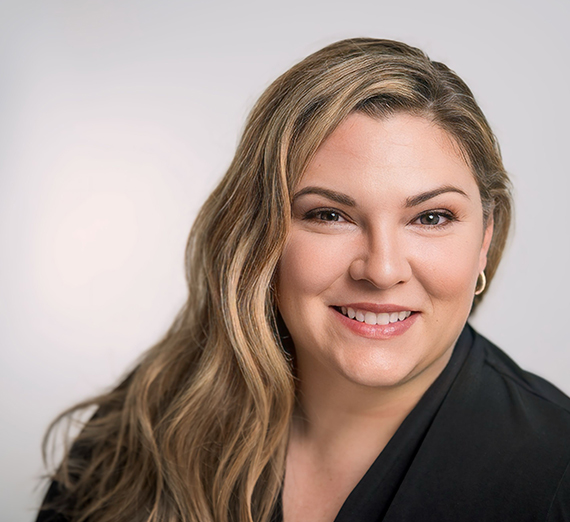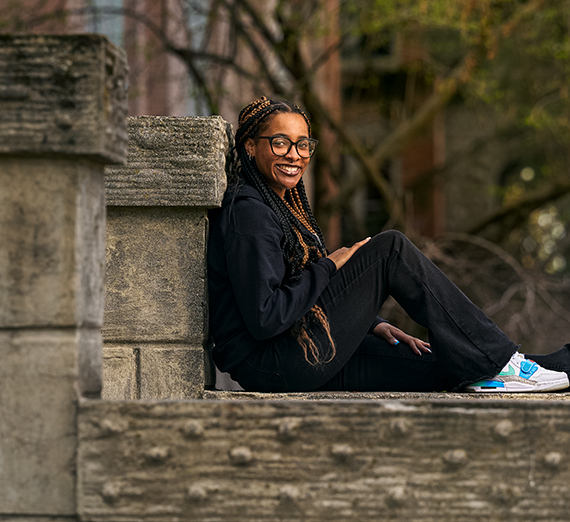Senior Spotlight: Sydney Baltuck is Seeking Health Equity
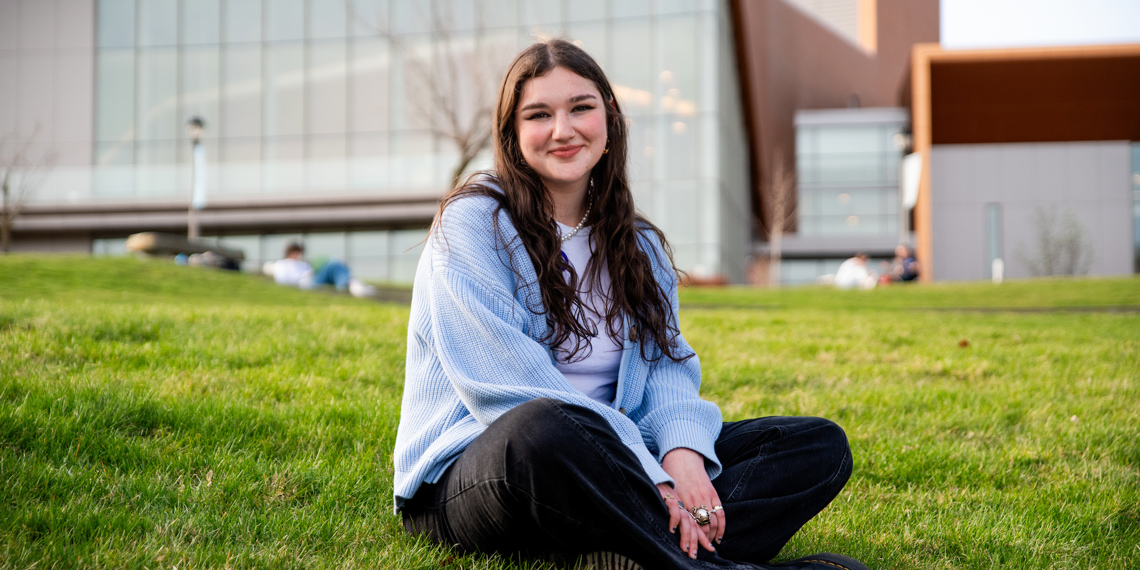
This piece is part of our Senior Stories series, in which we highlight GU students throughout the year.
Name: Sydney Baltuck
Studies: Sociology, criminology, solidary and social justice, health equity
Hometown: Seattle, Washington
Sydney Baltuck had always planned to be a doctor until she took a sociology class her freshman year and everything changed.
While chemistry had been a source of stress, Baltuck’s psychology classes engaged and excited her. This spark of curiosity led Baltuck to switch to a sociology and criminology major where she continued to expand her horizons.
“When I was a sophomore, I took a Sociology of Health and Medicine class. That really broadened my perspective on what sociology is, but also of the structural injustices within American health care specifically,” said Baltuck.
Her initial interest in medicine, combined with health and sociology, hooked Baltuck, and her reverence for the material was evident. The professor of the class, Andrea Bertotti-Metoyer, offered Baltuck a job in the sociology department to aid in the development of the new health equity minor. Bertotti-Metoyer had previously established the solidarity and social justice minor at Gonzaga, and Baltuck was quick to add both new minors to her studies.
She continued to be a sponge for knowledge and experience, working as a teaching assistant for Bertotti-Metoyer, as well as conducting her own research on biomedical technology and the creation of fetal personhood.
As vice president of the Reproductive Justice Club, she has helped to spread information on reproductive justice and equity and worked with the Gonzaga Student Body Association to provide free menstrual products in Gonzaga’s female and gender-neutral restrooms.
But Baltuck still didn’t stop there. She is also part of the Health Equity Circle, a coalition of students from University of Washington, Washington State University, Eastern Washington University and Gonzaga, who work together to educate and host events involving health equity. Due to the two clubs' overlap, Baltuck's two organizations recently collaborated on a drive to collect hygiene products right before Thanksgiving break.
Baltuck believes that her diverse academic knowledge allows her to look at her subject material through a new perspective.
Looking ahead, Baltuck wants to further her education.
“I just feel like I’m not done learning,” she says.
“I like taking the courses and volunteering, but it doesn’t stop the core issues from happening and persisting. And so, sometimes, I’m a little stuck with what I want to do to help create genuine change. Helping individuals is amazing but I’d like to think more about structural issues and helping on a broader scale.”
Baltuck wants to pursue a career working toward prison abolition but sees herself on that path after some more experience. After graduation, she plans to take a gap year before grad school to participate in community organizations like City Year, an educational non-profit that allows students to volunteer their time in local schools.
“You’d be a mentor in a classroom setting and there to help kids since, a lot of times, there are schools that are underfunded and underrepresented,” Baltuck explained about City Year. “Education is a big part of health equity and I feel like education opens doors to many things.”
Baltuck feels that she’s on the path she’s meant to be on and when asked if she could tell her freshman-self one thing, she replied that it would be to take a sociology class sooner.
- Academics
- Careers & Outcomes
- Health & Wellness
- Service & Community Impact
- Student Life
- School of Health Sciences
- College of Arts & Sciences
- Criminology
- Solidarity and Social Justice
- Sociology
- Health Equity

